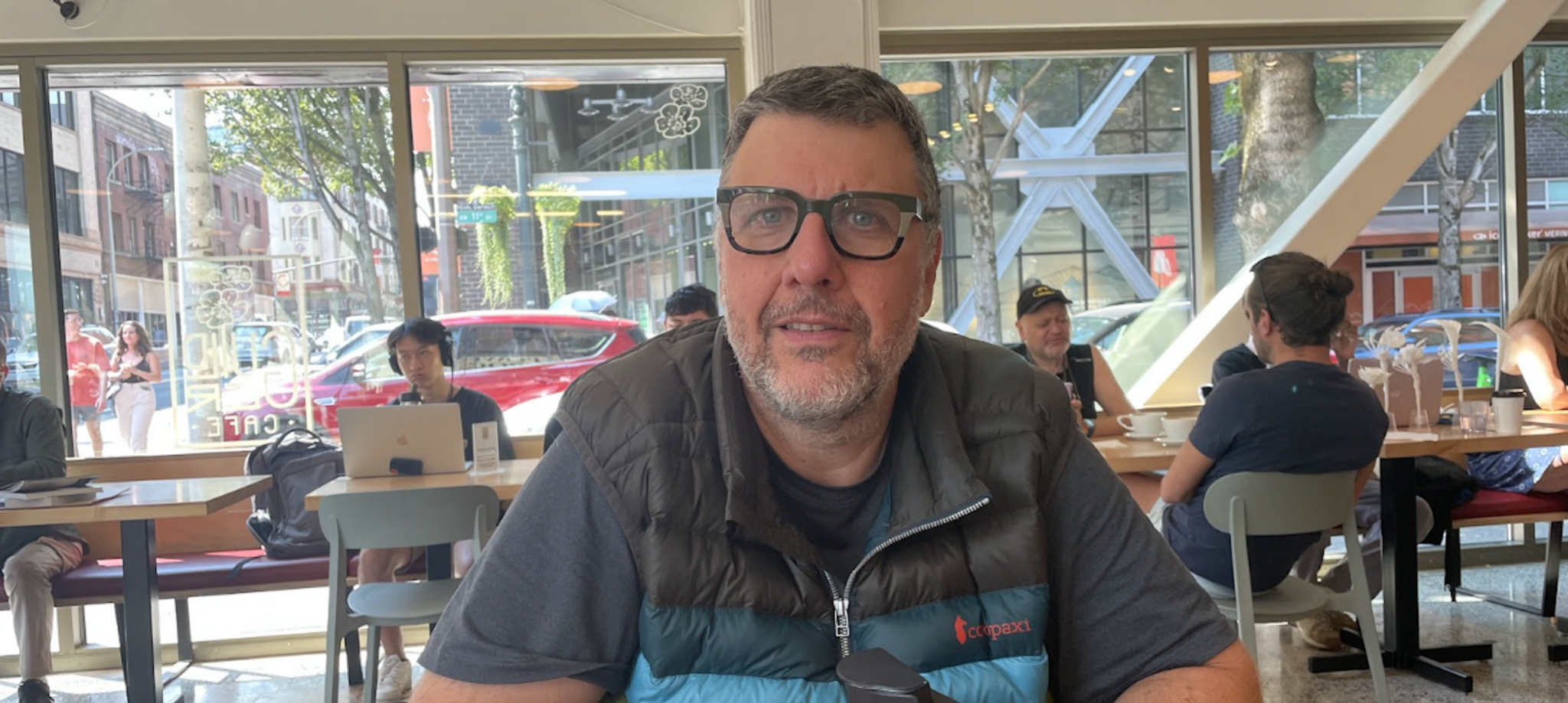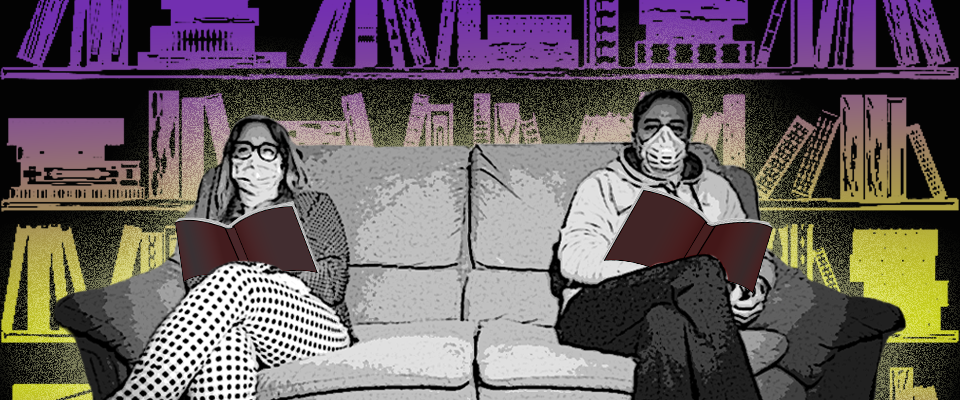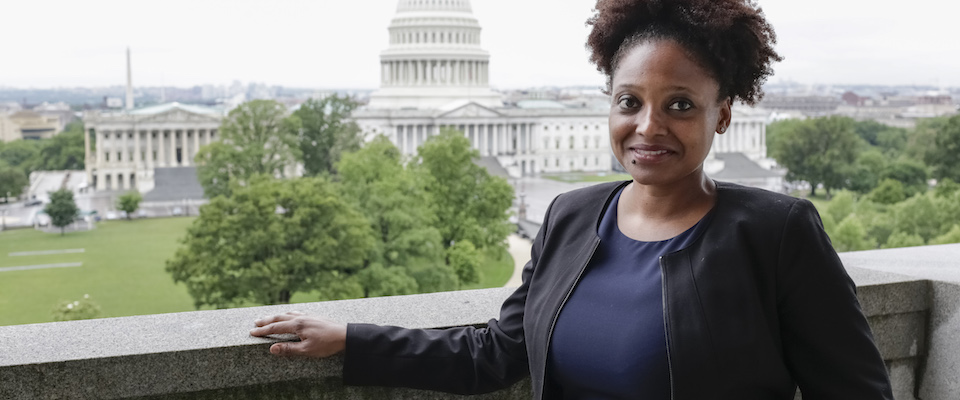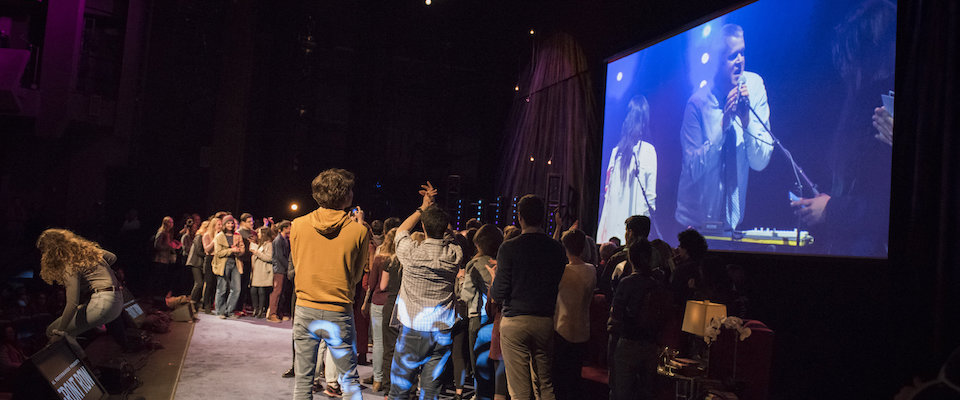Sitting in the coffee shop at Portland’s famous Powell’s Books, his name on the marquee outside, Matthew Zapruder seems surprised when asked how it feels to be an emergent public figure in poetry.
“I am?” he asks, voice breaking slightly as he strains to be heard above the cafe crowd, none of whom, it’s true, appear to be taking much notice of him.
Zapruder, who’d just had another poem published in the New Yorker, was in town to talk about his latest book, Story of a Poem, ostensibly about the slow writing and revising of a single work of verse, but in fact, an attempt to make sense of the public and private tumult of recent years, from America’s fraying politics and the catastrophic California wildfires to, most poignantly, becoming a parent to a son diagnosed with autism. “What is the relation between making poems and learning to be the father of this atypical child?” he asks in Story’s dreamy prologue.
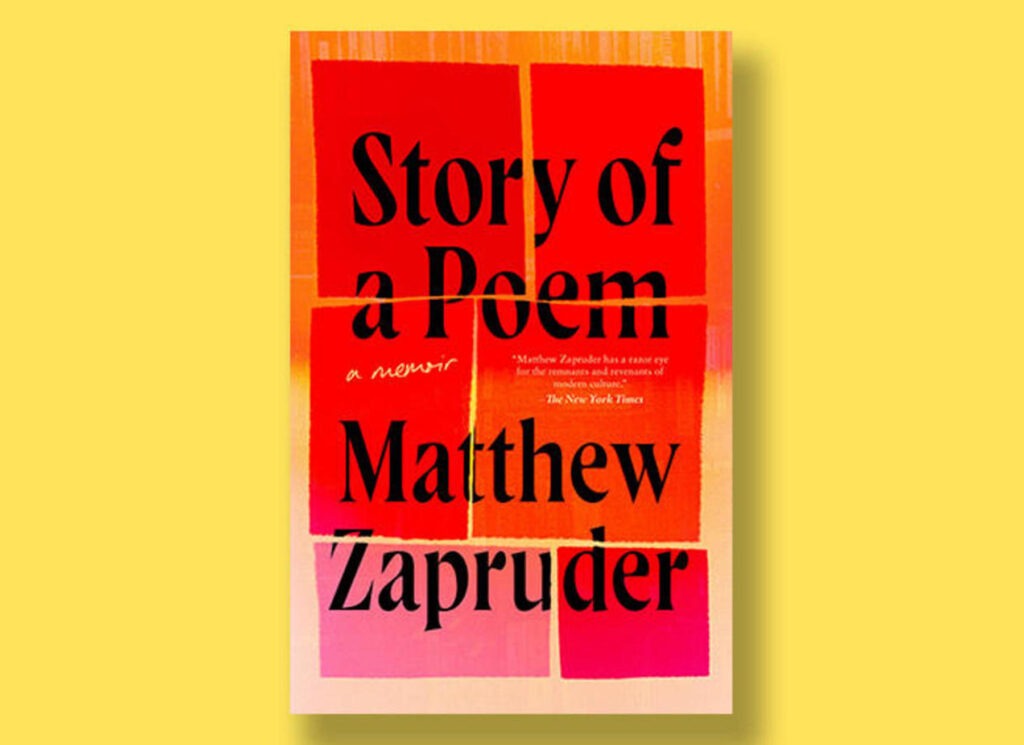
The question has sparked e-mails from parents of all sorts of kids, neurodiverse and otherwise, each of which he responds to. “Well, I mean, if it’s a nice e-mail. There are a few jerks, too, who don’t get replies.”
Years back, wanting desperately to be a poet, Zapruder cut short his doctoral work in Slavic studies at Berkeley, a departure spurred in part by an encounter he had with Berkeley’s only Nobel Laureate in literature, the late Czeslaw Milosz. Writing in the third-person, Zapruder drolly recounts the meeting in the opening pages of Story:
After Milosz finished reading, everyone went into one of the classrooms, with a few tables with ancient cookies and new wine. He decided to go talk to the great poet, despite having recently and inexplicably dyed his hair a nauseating admixture of blue and green. This didn’t seem visibly to bother Milosz, who graciously asked what he did. Without thinking about it, he said, for the first time, I am a poet. Milosz suddenly grabbed his hand, and, looking down, in a deep voice that thundered directly from his wild silver eyebrows, uttered, YOU MUST LEAVE.
“Never saw him again,” says Zapruder, who nonetheless followed the advice, leaving Berkeley to pursue a poetry MFA at the University of Massachusetts, Amherst, where he would occasionally wander to Emily Dickinson’s grave and ask for help or earnestly recite his poems.
If book jackets and website biographies are anything to go by, it was a good move. He has had a charmed life as a poet ever since: five poetry collections, two books of prose, not to mention fellowships, prizes, accolades and so on. In 2017, he was the editor of the poetry column of The New York Times Magazine, following in the wake of former U.S. Poet Laureate and Pulitzer prizewinner, Natasha Trethewey, a pal and MFA classmate.
He had more to say about Milosz, but it’s hard to hear as the background din of the coffee shop ticked up a few decibels, punctuated by the especially loud screaming of a few under-fives nearby. Zapruder, hair no longer blue-green but slate gray, seems unfazed by the noise as he reluctantly offers up hot-take responses on a variety of subjects.
On ChatGPT and poetry: “AI writing poems seems so far down a list of things to worry about.”
On the literary world’s occasional snubbing of pop poet superstar Rupi Kaur: “I mean, people said Keats wasn’t literary enough. I’m bored with people saying negative things about Kaur. Explain to me why millions of people like her writing. Are they all idiots?”
On the ability of poetry to survive in a hyper-distracted, screen-transfixed age: “Poetry is a pretty basic, primal activity – messing around with language as raw material to generate new meanings. It’s going to be tough to eradicate.”
On that New York Times thing: “It was a cool gig, yes, but also an enormous amount of work. People want stuff published. It’s a lot of emotional pressure. I get it, but I already had enough responsibility as a parent.”
Now, out comes the cell phone and some genuine enthusiasm as the subject turns to Cal, his favorite alma mater, despite the early exit. “I earned my M.A.,” he points out. “It’s not like I dropped out.”
Since he lives nearby, in Oakland, he often visits campus for poetry readings or even just to wander old haunts. He’s friendly with poets Polina Barskova in the Department of Slavic Languages and Literature, and Geoffrey G. O’Brien in English. And he goes to baseball games with Cal’s best-known living poet, Robert Hass.
“Surrogate parents might not be quite right but close,” Zapruder says of Hass and his wife, poet Brenda Hillman, a colleague of his at St. Mary’s College, where he’s an associate professor in English.
In 2018, Zapruder was featured in the Hass-directed Lunch Poems series in Berkeley’s Morrison Library. “The room is incredible! It’s gorgeous! Check this out,” he says excitedly, swiping through photos and landing on the cover of a first-edition he plucked off the Morrison’s shelves. It’s A Mask for Janus by W.S. Merwin. “W.H. Auden picked this for the Yale Younger Poets Prize in 1952. I was like, shit!” In his 2017 book, Why Poetry, Zapruder gives an account of a pilgrimage he made to Maui to meet Merwin near the end of his life.
More swiping and he stops on the smiling face of an eight-year-old on a train. “There he is, my son,” he says, calm amid the chaos of the cafe, louder still as the under-fives agitate for more carbs. “He’s a big smiler, really cute, and he’s really happy to be on the T in Boston. He’s a good little dude.”
His voice giving out, it’s time to wrap up the interview. Zapruder wants to do some shopping and get some rest before the evening event, a live podcast recording with the literary magazine Tin House. “I’m not really an extrovert, so I find it tiring to do pop-up performances,” he says, leaving to browse the Powell’s shelves. “But I’ll be fine.”
And later that evening, a few floors up from the cafe, speaking before a hushed crowd of several dozen, he is.
Geoff Koch is a writer and poet in Portland. His previous California article, “All In and Zoomed Out”, was published online June 6, 2023.











